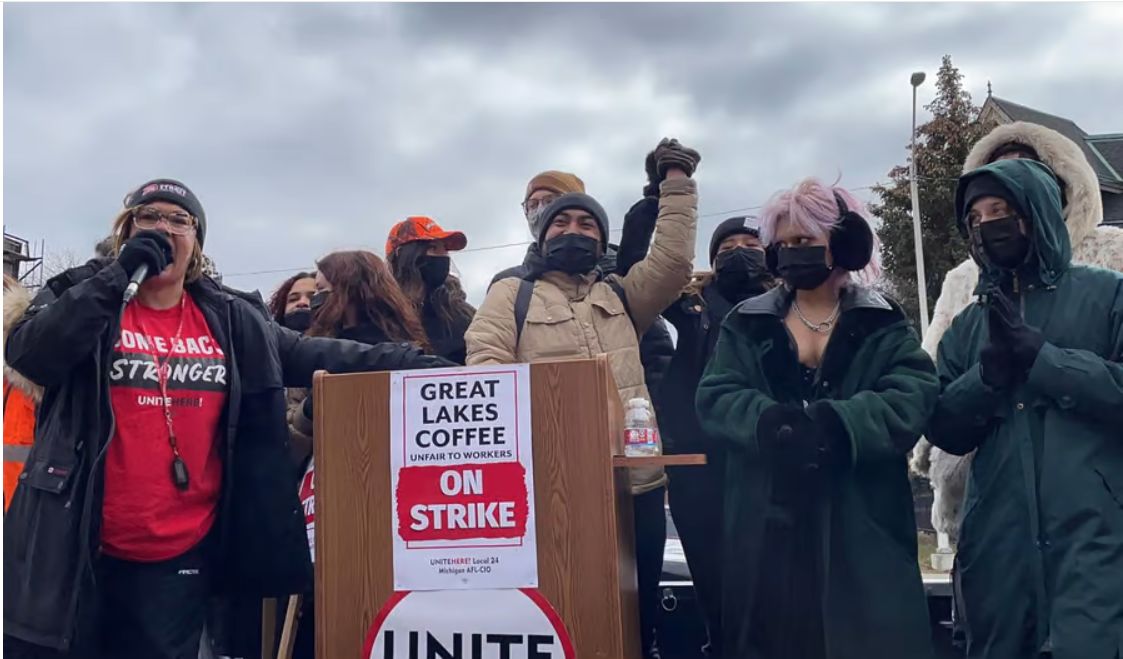These 20 Striking Detroit Baristas Could Lead a Union Revival

Great Lakes Coffee workers on strike. (Diana Hussein / UNITE HERE)
By asking the NLRB to force their employer to recognize the union without holding an election, they are striking a bold blow for industrial democracy.
By Daniel Judt TODAY 5:30 AM
Since February 16, 20 of the 24 workers at the Great Lakes Coffee Roasting Company in Detroit have been on strike, fighting for a union. All 20 have signed cards designating the restaurant workers’ union UNITE HERE as their exclusive bargaining representative. Great Lakes has refused to recognize the union, insisting that the workers proceed with a formal election by secret ballot. On February 25, nine days into the strike (which is still in effect), UNITE HERE filed a legal complaint against Great Lakes to the National Labor Relations Board (NLRB). The complaint argues that by refusing to recognize the union as the workers’ “designated bargaining representative,” Great Lakes is breaking the law.
Small though it may seem, the case could be of enormous consequence for the future of the American labor movement. It is part of a concerted effort by unions and the NLRB to return to a doctrine known as “Joy Silk,” which allowed workers to more easily demand that their employer bargain with their union without going through a formal NLRB-run election. NLRB General Counsel Jennifer Abruzzo indicated last year that she wants to resurrect Joy Silk. UNITE HERE’s complaint against Great Lakes gives her the chance to do so.
A return to Joy Silk would be significant on two registers. In the short term, it would give workers a tool to keep employers from interfering in union elections. In the long run, it could spark a deeper shift to worker power by helping to sever the link between workplace democracy and secret ballot elections altogether. This may seem paradoxical at first. But it is an open secret that NLRB-run elections are exercises in anti-democracy. The process effectively functions as an opportunity for employers to coerce workers through anti-union tactics (legal and otherwise). This perverse legal regime—elections as a tool of repression—has served to quash union drives for decades. It was not always so.
Time was, workers did not have to win an election to prove their desire for a union. The Wagner Act of 1935 authorized the NLRB to recognize unions either by secret ballot election or by “any other suitable method.” Workers who wanted a union didn’t need to express themselves at a ballot box. “If there is a strike in a plant where a thousand people are working and 900 go out, you do not have to have an election to determine what the 900 want,” explained William Leiserson, a labor expert and future NLRB member, during congressional hearings on the act. “They are telling you. It is silly to go through the election business then.”
FULL story:
https://www.thenation.com/article/activism/joy-silk-detroit-strike
